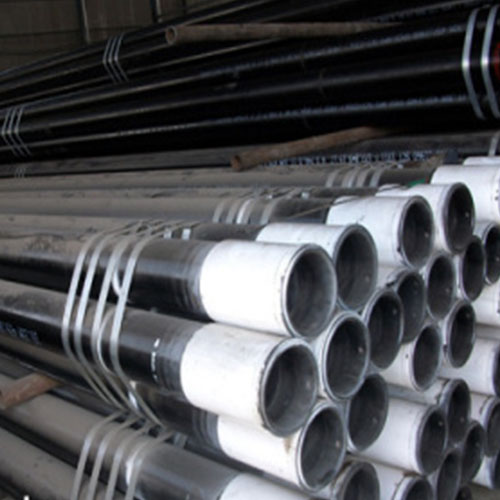Benefits of Using Slip Type casing Hanger in API 6A wellhead Components
API 6A Casing Hanger with Slip Type and mandrel type for Wellhead Component Casing Head
When it comes to wellhead components, the casing hanger plays a crucial role in supporting the casing string and providing a seal between the casing and the wellhead. In API 6A wellhead components, there are two main types of casing hangers that are commonly used: slip type and mandrel type. Both types have their own unique advantages, but in this article, we will focus on the benefits of using slip type casing hangers in API 6A wellhead components.
One of the key advantages of slip type casing hangers is their ease of installation. Unlike mandrel type casing hangers, which require the casing to be threaded through the hanger, slip type casing hangers can simply be slipped onto the casing string and secured in place. This not only saves time during installation but also reduces the risk of damaging the casing during the process.
Another benefit of slip type casing hangers is their versatility. these hangers can accommodate a wide range of casing sizes, making them suitable for a variety of wellhead applications. This flexibility allows operators to use the same type of casing hanger for multiple wells, reducing the need for multiple hanger sizes and simplifying inventory management.
TubingIn addition to their ease of installation and versatility, slip type casing hangers also provide a secure and reliable seal between the casing and the wellhead. The slips on these hangers grip the casing firmly, preventing any movement or slippage that could compromise the integrity of the wellhead. This ensures that the wellhead remains secure and leak-free, even under high pressure and temperature conditions.
Furthermore, slip type casing hangers are designed to withstand the harsh conditions of Oil and gas production. Made from high-quality materials such as alloy steel or stainless steel, these hangers are resistant to corrosion, erosion, and wear, ensuring long-term reliability and performance. This durability reduces the need for frequent maintenance and replacement, saving operators time and money in the long run.
Overall, slip type casing hangers offer a number of benefits for API 6A wellhead components. Their ease of installation, versatility, secure seal, and durability make them a popular choice among operators in the oil and gas industry. By choosing slip type casing hangers for their wellhead components, operators can ensure the safety, efficiency, and reliability of their wellhead systems.
oil Pipe cleanerIn conclusion, slip type casing hangers are an essential component of API 6A wellhead systems, offering a range of benefits that make them a preferred choice for operators in the oil and gas industry. With their ease of installation, versatility, secure seal, and durability, slip type casing hangers provide a reliable and cost-effective solution for supporting and sealing casing strings in wellhead applications.Operators looking to enhance the performance and longevity of their wellhead components should consider using slip type casing hangers in their API 6A systems.
Comparison Between Mandrel Type and Slip Type Casing Hangers for API 6A Casing Head
API 6A Casing Hangers are an essential component in wellhead systems, providing support and sealing for the casing strings in oil and gas wells. There are two main types of API 6A Casing Hangers: Slip Type and Mandrel Type. Both types serve the same purpose, but they have distinct differences in their design and functionality.
Slip Type Casing Hangers are designed with slips that grip the casing string when weight is applied from above. These slips are typically made of hardened steel and are activated by a mechanical or hydraulic mechanism. When the casing is lowered into the wellhead, the slips engage with the casing wall, providing support and preventing it from moving or rotating. Slip Type Casing Hangers are commonly used in vertical wells where the casing weight is sufficient to activate the slips.
On the other hand, Mandrel Type Casing Hangers use a mandrel that is inserted into the casing string to support it. The mandrel is typically made of high-strength steel and is designed to fit snugly inside the casing. When weight is applied from above, the mandrel transfers the load to the casing, providing support and preventing it from moving or rotating. Mandrel Type Casing Hangers are commonly used in deviated or horizontal wells where the casing weight may not be sufficient to activate slips.
well casing oil and gasOne of the key differences between Slip Type and Mandrel Type Casing Hangers is their installation process. Slip Type Casing Hangers require the casing to be lowered into the wellhead and then lifted slightly to activate the slips. This process can be time-consuming and may require additional equipment to ensure proper installation. In contrast, Mandrel Type Casing Hangers can be installed by simply inserting the mandrel into the casing string before lowering it into the wellhead. This makes the installation process quicker and more efficient, especially in challenging wellbore conditions.

Another difference between Slip Type and Mandrel Type Casing Hangers is their load-bearing capacity. Slip Type Casing Hangers rely on the gripping force of the slips to support the casing string, which may limit their load-bearing capacity in high-pressure or high-temperature environments. Mandrel Type Casing Hangers, on the other hand, transfer the load directly to the casing, providing a more secure and reliable support system. This makes Mandrel Type Casing Hangers a preferred choice for critical applications where safety and reliability are paramount.
In conclusion, both Slip Type and Mandrel Type Casing Hangers have their own advantages and disadvantages. Slip Type Casing Hangers are suitable for vertical wells with sufficient casing weight, while Mandrel Type Casing Hangers are preferred for deviated or horizontal wells and critical applications. The choice between the two types ultimately depends on the specific requirements of the wellbore and the operating conditions. By understanding the differences between Slip Type and Mandrel Type Casing Hangers, operators can make informed decisions to ensure the safety and efficiency of their wellhead systems.
